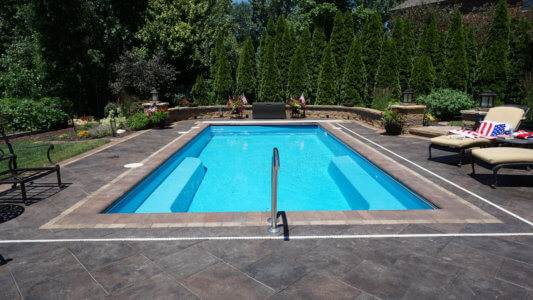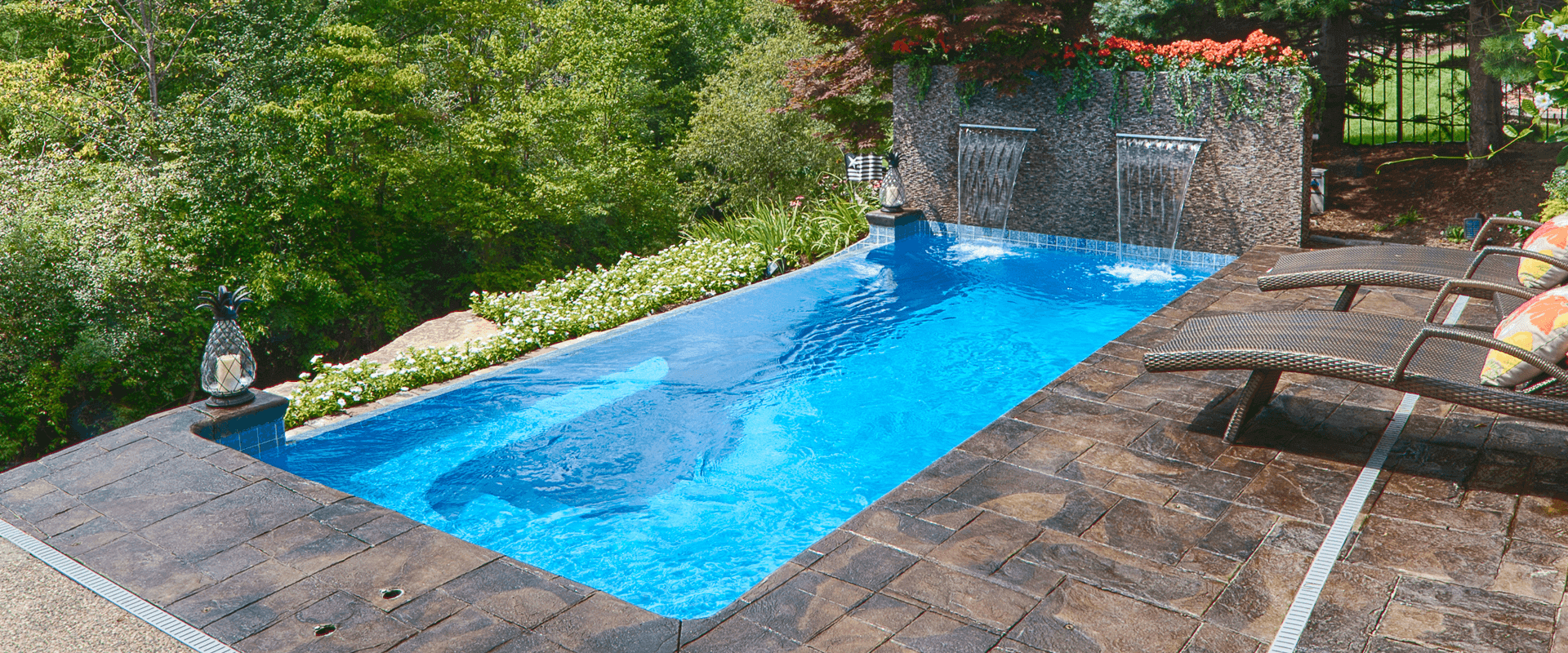877-929-(7665)
Ask the General: Cartridge Filters vs. Sand Filters; Which is Best for Your Pool?
Dear General-
We’re getting a new fiberglass pool this summer! We’ve chosen our fiberglass pool design and our add-on features. Now, we’re wondering what kind of filtration system we should get. We’ve heard pros and cons about both cartridge filtration systems and sand filtration systems. We want what’s best for our pool long-term, but of course we’re excited about low pool maintenance too. What guidance can you give us?
 Signed- Figuring out filtration in Fairfield
Signed- Figuring out filtration in Fairfield
Dear Figuring in Fairfield-
Great question! If you’re a regular reader of my articles, you’ve heard me talk about sand filtration already. Cartridge filters are great too. There’s no one system that’s superior to the other, and I’ve used both over the years. But, let’s see if we can filter through some more details and help you choose what’s best for you.
Let’s first take a look at how they work.
Sand filters
Sand filters work quite simply by pushing your pool water through sand that catches the dirt and debris and returns clean water into the pool. You clean your sand filter by backwashing it. This means running water backwards through the filter until the filter is clean. Sand filters are a pretty popular option for residential inground pools.
Sand filter maintenance
Sand filters require very little maintenance, other than the aforementioned backwashing. You’ll need to replace the sand every 2-4 years, depending on how often you use your pool.
Cartridge filters
Cartridge filters have a single layer of filter media made of synthetic fabrics attached in pleats to a cylindrical core. Water is pumped through the filter and passes through the cartridge, trapping dirt and debris in the fabric. Some spas and above-ground pools have a cartridge incorporated in the skimmer. You’ll need to make sure you’ve chosen the appropriately sized filter for your pool.
Cartridge filter maintenance
Cartridge filters must be manually removed to be cleaned. When the filter gauge increases 8 to 10 psi over normal (or, your water flow is visibly reduced), it’s time to clean them. It’s a great idea to keep an extra set of cartridge filters handy, so that you can swap them out when one set is being cleaned. However, with each cleaning, you’ll only recover about 60 percent efficacy. So, after three or four cleanings, you’ll probably have to buy new filters. However, cartridge filters cut energy costs because they require less pump pressure.
Which filtration system is best for you? It depends.
How important is water clarity?
 Both systems will give you clear water. But for the absolute best water clarity, cartridge filters win.
Both systems will give you clear water. But for the absolute best water clarity, cartridge filters win.
Cartridge filters typically screen out twice as much dirt and debris as sand filters do. A cartridge filter takes out so fine a particle that your water actually glistens. It can really be witnessed at night when your pool lights are on. That little foggy halo of tiny particles that the light displays is greatly reduced.
Where do you live?
For areas that tend to be debris-heavy, sand filters are your best bet.
For example, I live in an established neighborhood with very little dirt and debris floating around in the air. Therefore, I enjoyed the cartridge system and only cleaned the filters once a season, when I closed the pool for the winter. The filters lasted about four years, but were expensive to replace. However, my daughter lives in the country, and her pool is surrounded by corn, and soybean fields. The dust and pollen factors are very high, especially when the fields are freshly plowed or harvested. She had a devil of a time with her cartridge system because she needed to clean it out so often. It’s time-consuming to take a filter apart, soak it and put it back together. And the more often you clean it, the more often it will need to be replaced. We changed her to a sand filter, and it was smooth sailing from there! And obviously, if you’re planning an indoor pool, cartridge filters are absolutely your best bet.
Ask the pros
You can always consult with your pool professional for advice on what type of pool filtration system will work best for the area you live in and how you plan to use and care for your pool. They can also make recommendations about manufacturers. No matter which system you choose, you’ll love the durability and low-maintenance that a fiberglass pool offers. Happy swimming!
